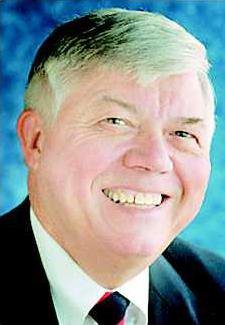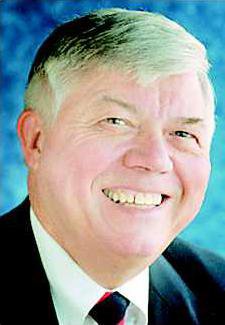Another major focus of the state is securing employment for veterans. According to the Workforce Division at the Department of Economic Development, up to 80,000 veterans will return to Georgia within the next four years. The unemployment rate for veterans continues to exceed the national unemployment average, especially among the Iraq and Afghanistan-era vets.
For male Gulf War II (since 9/11) veterans age 18 to 24, the 2013 unemployment rate stood at 24.3 percent, while the rate for non-veterans in that same age group was 15.8 percent.
The Workforce Division operates several programs aimed at connecting veterans with jobs. For example, Operation Workforce is an online venue where veterans and employers throughout the state can connect. The Web site allows veterans to create a profile, upload a résumé, and search and apply for jobs. The site also allows Georgia employers to create profiles, post job listings, review applications, and search the site for qualified candidates.
One benefit employers have with hiring veterans is the Work Opportunity Tax Credit. The WOTC is a federal tax credit available to employers for hiring individuals from certain target groups (including veterans) who have consistently faced significant barriers to employment. The maximum tax credit ranges from $1,200 to $9,600, depending on the employee hired.
In addition to the Web site, the Workforce Division also holds summits for employers regarding the hiring of veterans. The Operation Workforce Employers Summits are events held at technical colleges for employers to learn about how to find veterans, training programs offered to veterans, the civilian license transfer application process, and listen to success stories from an employer panel.
Additionally, the Georgia Department of Labor (GDOL) assists veterans with employment services. For example, in 2013 GDOL hosted “Paychecks for Patriots,” which were five veterans’ career expos held across the state in order to match both unemployed and under-employed veterans with companies looking to hire veterans. More than 1,500 veterans attended the five “Paychecks for Patriots” events and had the opportunity to meet with more than 250 companies with a stated preference to hire veterans.
Also, the GDOL career centers prioritize veterans and provide specific services and individualized assistance.
Veterans treatment courts
Along with the boom of drug courts and DUI courts across the state, veterans treatment courts are gaining popularity in Georgia and across the country. Like other accountability courts, the focus in a veterans treatment court is on the treatment of damaging behavior rather than imprisonment.
The courts combine strict supervision and drug testing with a mentoring program designed to keep veterans sober and drug-free, and to help them integrate back into society. Veterans treatment courts target offenders with substance abuse problems, mental health issues, and those who suffer from PTSD.
There are currently six veterans treatment courts in Georgia serving 12 different counties (Fannin, Gilmer, Pickens, Fulton, Chatham, Muscogee, Butts, Lamar, Monroe, Columbia, Richmond and Burke). The Fulton County VETS Court has had 34 veterans begin treatment, and has retained nearly 80 percent of those veterans, which means so far the court has kept 27 veterans from going to prison, and allowing them get needed help. The program began in March 2013, and the first full term (18 months) will be completed in September of this year.
During the 2014 legislative session, the General Assembly passed SB 320 authorizing any court that hears criminal cases to start a veterans Court division. The bill also charges the judicial council with creating standards for these courts based on the most current research and best practices as established by agencies that specialize in veterans services, and to update these standards as new research is developed. With the passage of SB 320 it is expected that more court systems will begin to implement veterans court divisions.
Getting vets involved with Juvenile Justice
In a state with 770,000 veterans, and thousands more expected to return over the next few years, it is important to find ways to get veterans re-engaged with their communities. The qualities of our servicemen and women including discipline, confidence and service, coupled with the state’s implementation of juvenile justice reform, create a unique opportunity.
The community supervision of juvenile offenders has become an important tool in helping to reduce juvenile recidivism, and the guidance and interaction with our veterans in communities appears to be an opportunity for change. Who better to mentor these kids and help them become solid citizens than our returning veterans?
The Department of Juvenile Justice had 31,093 kids under the supervision of its Division of Community Services in FY 2013, and with an estimated 80,000 veterans returning home over the next four years, this would seem to be a win-win for both veterans looking for engagement in their communities and areas trying to reform their troubled youth.
Conclusion
While the state, with the help of the federal government, does a lot to help veterans, there is still work to be done. With more vets returning it’s important to find ways to help them re-engage in communities, and make sure that those that struggle have help along the way. It is also important to think of new ways that can not only help veterans find employment, but also help their communities upon return. It is essential for the state to continue to work with the federal government in making sure veterans can restart and rebuild their lives upon their return, and continue to serve the communities they helped defend.
I may be reached at
234 State Capitol, Atlanta, GA 30334
(404) 656-5038 (phone)
(404) 657-7092 (fax)
E-mail at Jack.Hill@senate.ga.gov
Or call toll-free at
1-800-367-3334 day or night
Reidsville office: (912) 557-3811








